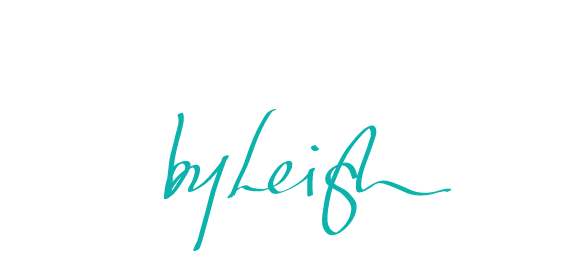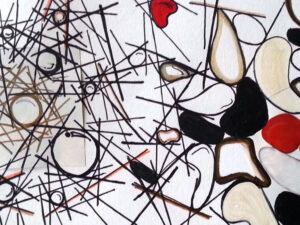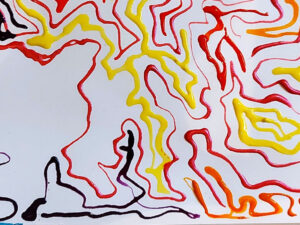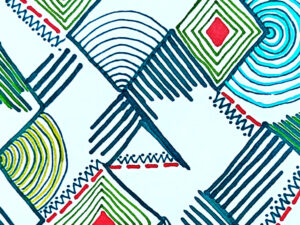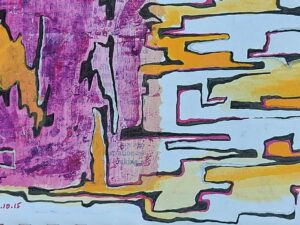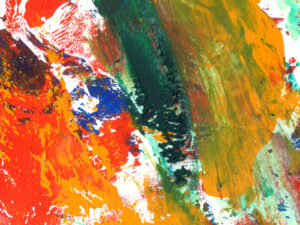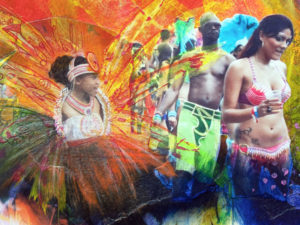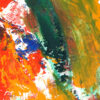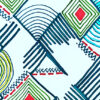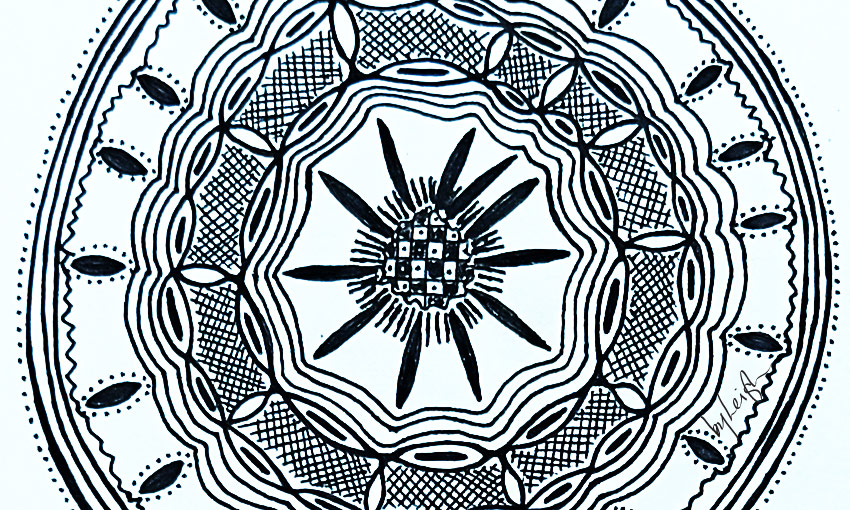
Featured Image: African Pattern Experiment al Sketch1 (cropped) by Leigh
18 Oct 2020
“Anti-racism is a lifetime of caring. That is a beautiful thing. Who wants to be discouraged from a lifetime of caring. That’s a terrible thing.” – Musa Okwonga
(VPRO Documentary, 2020, 00:48:14)
I just watched The Post-Racist Planet by VPRO Documentary and whoa! So many thoughts and ideas. I’m not sure if I can list them all here in order but I need to put them down so I don’t lose them! All times noted in this writing are for the video The Post-Racist Planet, full bibliography entry at the end. Text in blue is my Takeaway and how I plan to add, apply, adapt what I’ve learned for Carnival of Compassion.
00:14:50
Be A Good Ancestor
Author Layla F Saad talks about considering the impact you will leave on the planet. Not just nature but all life on the planet, the people, the cultures, the communities. In the context of this documentary being presented by the black father in a mixed race family (and I myself raising mixed race children in an interracial family), I cannot help but think – what meaning will my life have, what impact will it have on my children, my family, my friends, my community, my countries (because both T&T and Britain are home). Saad quoted James Baldwin with “We carry our history with us. We are our history.” And whoa! If I am history in the making, what am I making? I need this question and concept to be in Carnival of Compassion in a major way.
Side note: I also need to revisit Baldwin. I tried before but I found his work so painful to read I couldn’t finish. Deep breath and try again Stace.
00:18:25
Connection
Camille Barton – author, artist, facilitator, DJ. When she did that exercise where everyone paired off and faced each other and then, staring into each other’s eyes she said…
“become aware that this person has a desire to be loved, seen and accepted” – Camille Barton
(VPRO Documentary, 2020, 00:18:26)
BOOM!
“in their life they will have experienced some form of suffering, loss or oppression” – Camille Barton
(VPRO Documentary, 2020, 00:18:49)
BOOM!
“they have the power to heal intergenerational trauma and create positive social change in the world”– Camille Barton
(VPRO Documentary, 2020, 00:19:10)
OMG BOOM!!!
This needs to happen in my “Everybody is Somebody” section for sure! This is I SEE YOU in action! This is how you humanise the ‘other’. I wonder if I can hire her to do some of the exhibition events?
00:28:51
Perception & Reality
This bit hit me painfully hard. This is where all the erroneous negative mythologies and stereotypes around race really came into ugly focus. A Black man with dark skin in Barton’s workshop talks about how he sees himself vs how the world sees him. He wakes up and thinks I’m a friendly guy, I like talking to people and engaging with them. But then he goes outside and he knows that people see his skin and immediately look at him with fear. He describes it as,
“my body is like an alligator or a bear and people have to shoot it, kill it, stab it, or imprison it…I’m in the body of a monster. I’m a monster to people and I can’t escape that.”
(VPRO Documentary, 2020, 00:29:03)
This is how one person’s perception affects another person’s reality. This is the real harm of stereotypes and the systematic racism that we all ingest from birth. How will Carnival of Compassion make visitors aware of this “brain washing” we’ve all received? I know the compassion stories will challenge stereotypes. Can I employ anything else to interrupt these assumptions and inherited beliefs that we’re walking around with as if they are our own? Questions maybe?
Possible questions are:
- Who taught you that black represents evil?
- Who taught you to fear Black men?
- Who taught you that there wasn’t enough for everybody so for you to win, someone else has to lose?
- Who taught you to be afraid?
- Where did you learn that about them vs us?
- Where did you learn about power and how to get it?
- How did you learn what was beautiful?
- If you answered “My Parents” to any of these questions, how did your parents learn this?
- Did you ever get a different message anywhere else?
I wonder if I should vary how the questions start? Hence the playing around with different phrasing. Ok, back to dissecting the video.
00:30:27
Quotes to Note #1
Layla F Saad comes back in with some quotes that hit me for six!
“Wanting to be seen as a good person is actually preventing you from being a good person” – Layla F Saad
(VPRO Documentary, 2020, 00:30:27)
Then she talks about her idea of Utopia and what a Utopian citizen would be like and I was busy taking notes again!
“A Utopian human being is not one that’s perfect and never makes mistakes. It’s one that’s whole and owns all the different parts of themselves.” – Layla F Saad
(VPRO Documentary, 2020, 00:31:05)
This ties into my Self-Compassion section, where the message is – Love yourself with all your flaws. You’re a work in progress. Worthy as is, while also fine-tuning who you choose to be!
Superheroes
Camille Barton returns with…
“We all have power in different ways, we all have agency in different ways” (VPRO Documentary, 2020, 00:32:11)
Which totally reminded me about the book Black Privilege (Tha God, 2017) which I read a while back. This got me thinking about how I could help people to recognise their power so they could tap it and use it to benefit themselves AND each other! Hmm, I should get a quote from Charlamagne too. This idea of everyday people having superpowers is threaded throughout the entire documentary. The presenter introduces each expert by their ‘superpower’. Layla F Saad (who also need to be part of Carnival of Compassion! Just not surehow yet…) talks about the revolutionary sci-fi writings of Octavia Butler (00:40:44) who crafted superheroes within her stories. Saad goes on to talk about the fact that at any given point in history there have always been ‘dystopian’ times but alongside those times are people who are always willing to use their imagination to find a way.
“There have always been people who have said I refuse to accept these times. I’m going to vision a better future and I’m going to work to that vision.” (00:41:33) My favourite quote from Saad on this topic might well be,
“We have to keep imagination alive. We have to see a world bigger and better than we currently have.” – Layla F Saad
(VPRO Documentary, 2020, 00:41:41)
00:32:59
Designing an Inclusive Future
Superhero #3 is Dr Sennay Ghebreab, a neuroinformatician, who confirmed my desire to curate and produce this exhibition in an inclusive manner. His focus is AI and how we can avoid the bias and inequality it currently displays.
“It’s not AI in itself that creates inequity. It reveals the existing social inequality. Revealing the wrongs is good because we can start solving them. This is why it’s crucial to develop new technologies by people with various backgrounds and expertise. That’s how you develop it in an inclusive way.”
(VPRO Documentary, 2020, 00:34:26)
– Dr Sennay Ghebreab
This really solidified my determination to work collaboratively and engage in a lot of research to develop each artwork and the exhibition in its entirety. If I am to promote compassion and inclusivity, then I must exemplify it from the very beginning!
Children
Looking at the presenter with his daughter, (VPRO Documentary, 2020, 00:32:50) I realised… what will Carnival of Compassion offer kids? If we’re going to be inclusive then we must include children! This was further emphasised by Dr Ghebreab who wonders how creatively wealthy our world would be if the two billion young people on Earth “learn what algorithmic thinking is, or make algorithms themselves…” (VPRO Documentary, 2020, 00:34:52) Later on Musa Okwongo talks about teaching children to speak up (VPRO Documentary, 2020, 00:41:01) as a radical act in creating a different future. Letting them get accustomed to saying what they do and don’t stand for out loud so that when someone says something discriminatory in front of them, they have no hesitation in contradicting it with their inclusive stance.
“Just that one message at a very early age? We’ll change the world in a few years if we teach them that – to speak up.”
(VPRO Documentary, 2020, 00:44:33)
– Musa Okwonga
So it looks like we’re hosting some creative Life Story Art workshops with kids, the outcomes of which will be the art that represents their story! Eeek! I can’t wait! So darned excited!
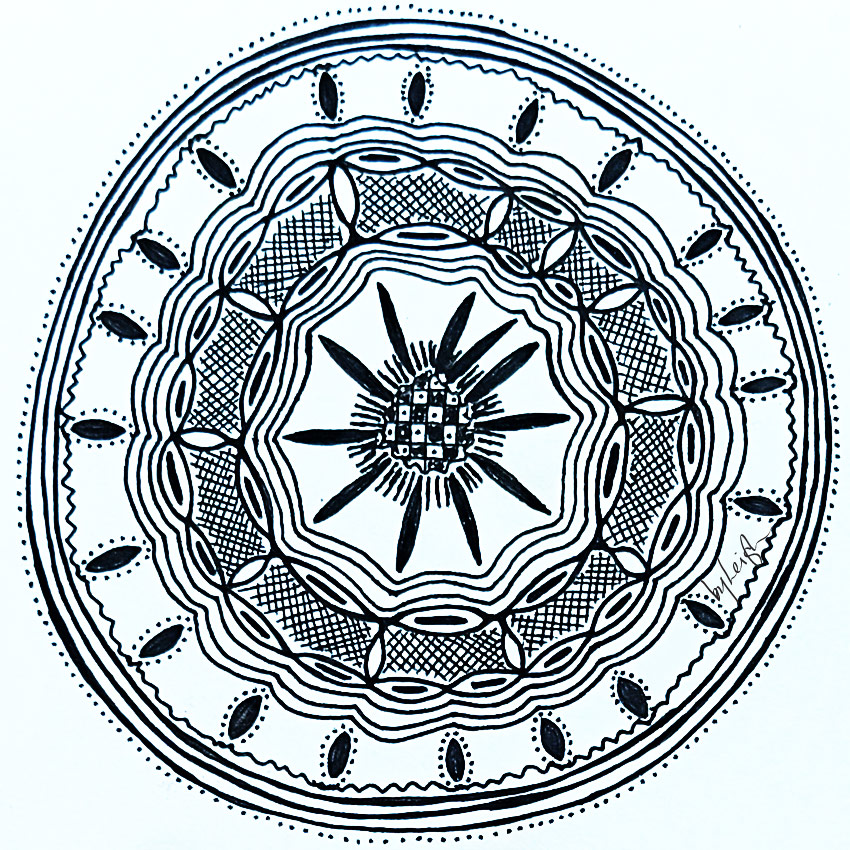
00:39:20
Imagining a Better Future
When he talked about being seen as a monster in Barton’s workshop, I didn’t realise that Musa Okwonga was the 4th Superhero, but then he turned up with this massive imagining of the future! This author and musician started talking about the value of our imagination.
“The opportunity of artists is to help us all imagine the unimaginable in a positive way” – Musa Okwonga
(VPRO Documentary, 2020,00:39:53)
Then he presented us with his vision of a world reimagined and I was sold. Greater access to healthcare, energy… a working week where people have time for their children and themselves… a universal basic income. More fun. More play. No borders. Sign me up!
What’s interesting here too is that he acknowledges that this isn’t utopia for everyone. Slavery and imperialism was some people’s concept of utopia. So I’m wondering, how do I address this with my exhibition? Having stories from multiple different people, from various backgrounds and experiences will help to broaden the appeal and ensure (hopefully) that there is actually something for everyone. But can I reasonably hope to tap the minds of individuals who preferred inequity that gave them an advantage? I suspect that thinking is born out of fear and scarcity. I’ll have to research to confirm this but if I’m right, we’d have to address that scarcity thinking before we could even begin to dismantle the inequality issues. Regardless of how well researched and presented it is, I’m not sure an exhibition is the right tool for that kind of individually rigorous work. Perhaps in these instances, I can be happy if Carnival of Compassion simply gets such individuals to start asking questions. And this is where it gets ‘real’. My dream of getting everyone on the same page should realistically be a dream of getting everyone to be more reflective, to think more critically and make decisions based on more evidence. That in itself is core to the common good. At least then people will be making informed decisions on their own, not just regurgitating inherited beliefs or social stereotypes. This bears way more digging into, a separate blog post methinks!
Now back to imagination! This is how I want people to leave Carnival of Compassion, imagining the amazing future we could create when we are compassionate to ourselves and each other, when we work together as a community. Okwonga states “my radical imagination is one where none of that [racism] exists, ever again.” (VPRO Documentary, 2020, 00:44:01) I didn’t think of Carnival of Compassion as being particularly radical but I have always thought of it as drowning my enemies in love, firing the love canons. So I suppose it has to be as radically loving as the hatred I want it to fight. There’s a thought!
The Comments
They say you should never read the comments. All the people who are afraid to spew nastiness to your face revel in the anonymous freedom to let go with impunity… but I thought as I’m designing an exhibition that is trying to achieve something similar to this documentary maybe I should see how people have received it… and WHOA! The white-lash and white-guilt were out in force, which tells me one thing for sure – I am actually safer doing an exhibition that doesn’t highlight the marginalised groups because although all of us act as both oppressed and oppressor in various situations, the public at large does not cope well with feeling guilty or responsible.
So I’ve come to some decisions.
- At no point should I identify a ‘baddie’. Let visitors decide on their own who or what the ‘villain’ is.
- Relating the injustices experienced by various marginalised groups in an intersectional manner and through the lens of compassion that saw them through such injustice may be the most effective way to convey my message without putting people on the defensive. This approach means that the exhibition is less about the ‘baddie’ and more about the good experience and how we can work to replicate more good experiences. Everyone can become the hero, no one is forced to identify with the villain. The argument could be made that I’m skipping an important part of the process but I’d argue that
- There are a gazillion other resources out there, artsy and otherwise, that can hammer the injustice message home and highlight oppressive behaviour, and
- Offering suggestions of how we might come to a solution, sets the audience up to begin questioning everything. This will hopefully lead to their own personal realisations which are much more long lasting and viable than any information I could try to hammer into them through art.
Closing thoughts
I’m just going to use these quotes because I couldn’t have said it better.
“We don’t wait until we know all the answers. This is an ongoing process, an ongoing practice, an ongoing journey.” – Layla F Saad
(VPRO Documentary, 2020, 00:46:43)
“You can start right now… read, read, read, keep learning, keep intervening because it’s not just the big marches, the big protests. It’s about having the difficult conversations with those relatives and those work colleagues you’ve been avoiding, because we’ve all been avoiding.” – Musa Okwonga
(VPRO Documentary, 2020, 00:47:21)
References
Tha God, C. (2017) Black Privilege. Unabridged Audiobook edn. Simon & Schuster Audio. Available at: https://www.audible.co.uk/pd/Black-Privilege-Audiobook/B06WWJ1BN3?source_code=M2M30DFT1BkSH121515013C&source_code=M2M14DFT1BkSH082015011R&&ipRedirectOverride=true (Downloaded: 23 April 2017) 18 April.
VPRO Documentary (2020) The Post-Racist Planet. Available at: https://www.youtube.com/watch?v=jA4CcOvYMT4&t=1984s&ab_channel=vprodocumentary (Accessed: 18 October 2020).
